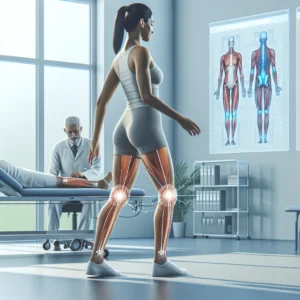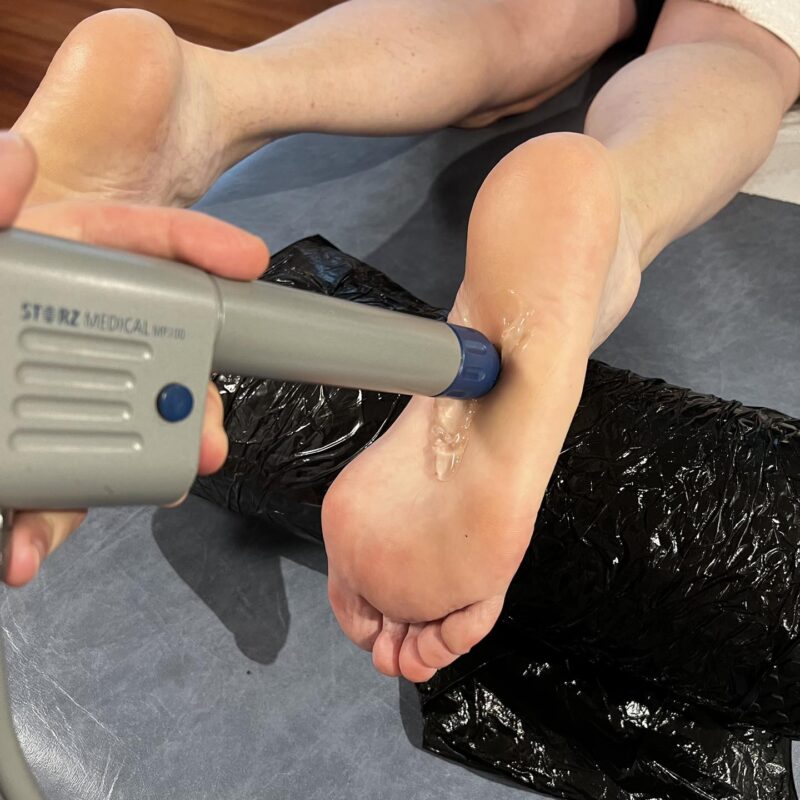Unlocking the Benefits of Acupuncture for Enhanced Post-Surgical Recovery
Acupuncture has emerged as a powerful ally in the journey toward recovery after surgical procedures. Rooted in traditional Chinese medicine, this holistic practice offers a comprehensive healing approach beyond merely alleviating symptoms, engaging with the intricate balance of energy and bodily function. By leveraging the therapeutic potential of acupuncture, patients can enjoy improved recovery outcomes, diminished pain, and enhanced overall well-being throughout their post-surgical healing process.
Discover How Acupuncture Significantly Improves Healing After Surgery
The effectiveness of acupuncture for healing after surgery stems from its unique ability to boost blood circulation and decrease inflammation, which are vital for effective healing. Post-surgery, the body experiences considerable trauma, which triggers inflammation as a natural response to injury. While some inflammation is necessary, excessive levels can complicate recovery and prolong healing times. Acupuncture balances this response by enhancing blood flow and supporting the body’s innate healing mechanisms.
Research has shown that acupuncture can significantly increase microcirculation in the tissues surrounding the surgical area, facilitating improved nutrient delivery and waste elimination. This surge in blood flow not only accelerates tissue healing but also helps alleviate pain and discomfort commonly experienced during surgical recovery. Furthermore, acupuncture boosts collagen production, a crucial protein underpinning tissue repair and regeneration. Patients undergoing acupuncture treatments often find their recovery periods substantially reduced, allowing them to return to their daily activities more quickly and efficiently.
Additionally, acupuncture is proficient in regulating the body’s stress response. The anxiety and emotional turmoil frequently associated with surgical procedures can impede recovery, making it critical to address both mental and emotional health as part of the healing journey. By fostering relaxation and mitigating stress, acupuncture creates an optimal environment for physical healing, showcasing its multifaceted advantages in post-surgical recovery.
 Unpacking the Science of Acupuncture’s Pain Relief Mechanisms
Unpacking the Science of Acupuncture’s Pain Relief Mechanisms
Delving into the mechanisms by which acupuncture facilitates pain relief unveils the depth of its therapeutic potential. Acupuncture interacts with pain pathways through its effects on the nervous system. When needles are strategically placed at specific points on the body, they stimulate sensory neurons that convey information to the brain. This interaction can effectively alter pain perception, significantly diminishing its intensity.
One of the most compelling elements of acupuncture is its capacity to trigger the release of endorphins—chemical messengers that function as natural painkillers. This release not only helps to alleviate pain but also fosters a sense of well-being, which is particularly beneficial during the vulnerable post-surgical phase. Additionally, acupuncture can help modulate neurotransmitters that play a role in pain management, leading to a more balanced and effective strategy for managing discomfort.
Recent studies have highlighted that acupuncture can significantly decrease the need for opioid medications in patients recovering from surgery. Given the escalating opioid crisis, it is essential to explore alternatives for pain management. By incorporating acupuncture into post-surgical care, patients can reduce their dependence on potent painkillers, thereby minimizing the risk of addiction and other unwanted side effects.
Real-Life Experiences: Patient Testimonials on Recovery Through Acupuncture
The transformative power of acupuncture is perhaps best illustrated through the narratives of patients who have integrated it into their post-surgical recovery journeys. Many individuals report remarkable enhancements in their healing experiences, highlighting reductions in pain levels, improved mobility, and accelerated recovery times.
For instance, a patient who underwent knee replacement surgery shared how regular acupuncture sessions alleviated the severe pain that lingered long after the procedure. Through consistent treatments, they observed a notable decrease in pain and an enhancement in their range of motion, which empowered them to engage more fully in physical therapy.
Another individual recovering from abdominal surgery recounted how acupuncture facilitated a smoother healing process. They noted that treatments to reduce inflammation and manage pain allowed them to regain their strength much faster than anticipated. This patient emphasized the significance of addressing both the physical and emotional dimensions of recovery, acknowledging that acupuncture played a crucial role in alleviating their anxiety related to the healing journey.
These authentic testimonies highlight the effectiveness of acupuncture for post-surgical recovery and underline the holistic approach that fosters improved health outcomes. As more patients embrace acupuncture, a growing collection of stories affirms its integral role in modern healing practices.
Exploring the Comprehensive Benefits of Acupuncture in Surgical Rehabilitation
Acupuncture transcends mere pain relief methods; it presents many benefits that can significantly enhance post-surgical rehabilitation. From diminishing reliance on medications to bolstering mental health, the benefits of incorporating acupuncture into recovery strategies are extensive.
Strategies to Reduce Dependency on Pain Medication
The opioid crisis has highlighted the pressing need for effective alternatives to traditional pain management approaches, particularly after surgical procedures. Acupuncture emerges as a viable solution, with numerous studies underscoring its potential to decrease the reliance on opioid analgesics. By concentrating on specific acupuncture points, practitioners can assist patients in effectively managing pain without the associated risks of medication dependency.
In clinical environments, patients receiving acupuncture alongside conventional pain management strategies often significantly reduce their medication dosages. This reduction minimizes the risk of adverse side effects and supports a more sustainable recovery journey. By directly addressing pain at its source and promoting natural healing, acupuncture empowers patients to navigate their recovery with enhanced confidence and comfort.
Moreover, acupuncture in pain management protocols often increases patient satisfaction. Many individuals express relief at discovering a non-invasive, drug-free alternative that aligns with their holistic health beliefs. This shift toward acupuncture mirrors a broader trend in healthcare, where patients increasingly seek comprehensive methods that prioritize their long-term well-being.
 Boosting Mobility and Alleviating Stiffness Post-Surgery
Boosting Mobility and Alleviating Stiffness Post-Surgery
Post-surgical recovery often presents obstacles to mobility and stiffness, particularly in orthopedic procedures. Acupuncture significantly enhances joint function and flexibility, which is crucial for regaining full mobility after surgery.
By promoting enhanced blood circulation and minimizing inflammation, acupuncture effectively mitigates stiffness and discomfort in the affected areas. Patients frequently report improved range of motion and reduced joint stiffness following acupuncture treatments. For example, individuals recovering from hip or knee surgeries often discover that acupuncture aids in loosening tight muscles and connective tissues, enabling them to engage more effectively in rehabilitation exercises.
Furthermore, acupuncture facilitates the body’s natural healing processes by alleviating muscle tension and fostering relaxation. This is particularly beneficial for patients reluctant to exercise due to fear of pain or reinjury. As acupuncture diminishes discomfort and enhances mobility, patients often feel more empowered to participate in their recovery, contributing to better overall outcomes.
Enhancing Mental Health and Emotional Resilience Post-Surgery
The psychological impact of surgery can be profound, leaving many patients grappling with feelings of anxiety, depression, and stress. Acupuncture offers a holistic approach to mental health support during the recovery phase. By promoting relaxation and emotional equilibrium, acupuncture can substantially enhance mental well-being for post-surgical patients.
Research suggests that acupuncture can help modulate the body’s stress response, effectively decreasing cortisol levels—a hormone closely linked to stress. This hormonal balance fosters a sense of calm and well-being, which is essential for patients navigating the emotional complexities that often accompany surgical recovery.
Additionally, acupuncture sessions create a dedicated space for patients to focus on their healing, promoting mindfulness and self-care. This aspect of treatment can be particularly valuable for individuals who may feel isolated or overwhelmed during their recovery. By incorporating acupuncture into their care plans, patients can cultivate greater control over their healing journey, leading to improved mental health outcomes.
Tailoring Acupuncture Techniques for Various Surgical Procedures
The adaptability of acupuncture allows it to be customized to meet the distinct needs of patients recovering from different surgical procedures. Various techniques can be employed based on the specific type of surgery, ensuring that each patient receives optimal care.
Acupuncture Strategies for Orthopedic Surgery Recovery
Acupuncture can provide substantial benefits for individuals recovering from orthopedic surgeries such as knee, hip, or shoulder operations. Specific techniques can target pain relief, diminish inflammation, and enhance mobility in the affected joints.
In knee surgeries, for example, acupuncture points on the lower back and legs may be stimulated to alleviate pain and promote healing. These points are intentionally selected to encourage circulation and reduce swelling, facilitating a smooth recovery. Additionally, acupuncture can aid in restoring strength to surrounding muscles, which is crucial for regaining function.
For hip surgeries, acupuncture can address pain in the groin and lower back—areas frequently impacted by hip joint issues. By targeting specific points, practitioners can foster relaxation and reduce stiffness, enabling patients to engage more fully in their physical rehabilitation.
Shoulder surgeries may benefit from acupuncture techniques that relieve upper back and neck tension. By alleviating muscle tightness in these areas, acupuncture can enhance overall shoulder mobility and diminish discomfort, allowing patients to return to their daily activities more rapidly.
 Utilizing Acupuncture for Post-Abdominal Surgery Recovery
Utilizing Acupuncture for Post-Abdominal Surgery Recovery
Abdominal surgeries, such as appendectomies or cesarean sections, can leave patients with significant discomfort and recovery challenges. Acupuncture can be an invaluable resource, aiding in pain relief and healing internal tissues.
After abdominal surgery, acupuncture can help reduce inflammation and promote healing in the surrounding tissues. Specific points may be selected to encourage circulation to the abdomen, which is crucial for healing internal wounds. Patients often report a decrease in pain and discomfort after receiving acupuncture, enabling them to focus on their recovery without the burden of excessive pain.
Furthermore, acupuncture can also help address digestive issues that may arise following surgery. Many patients experience alterations in bowel function after abdominal procedures, and acupuncture has been shown to help regulate digestive processes. This dual benefit of pain relief and digestive support makes acupuncture a holistic approach to post-abdominal surgery recovery.
Acupuncture Techniques for Post-Cardiac Surgery Recovery
After cardiac surgery, patients encounter a unique set of recovery challenges that can significantly affect them from acupuncture. Techniques specifically developed to support healing and reduce complications are essential.
Acupuncture can enhance circulation, which is vital for recovering from heart surgery. By encouraging blood flow and minimizing inflammation, acupuncture facilitates tissue healing and can help prevent post-operative complications such as blood clots.
In addition, acupuncture can significantly alleviate anxiety and emotional distress that often accompany cardiac surgery. Many patients experience heightened stress levels during their recovery, and the calming effects of acupuncture can help alleviate these feelings. By promoting relaxation and a sense of well-being, acupuncture supports both the physical and emotional dimensions of recovery.
Patients who incorporate acupuncture into their post-cardiac surgery care frequently report improved energy levels and an enhanced sense of overall health. This holistic approach aligns with the goal of comprehensive recovery, ensuring that patients are supported in all aspects of their healing journey.
Seamlessly Integrating Acupuncture into Your Recovery Plan
Incorporating acupuncture into post-surgical recovery plans requires thoughtful consideration and careful planning. Patients should be informed about the optimal timing for treatment, how to locate qualified practitioners, and how to combine acupuncture with other therapies for optimal results effectively.
Optimal Timing to Initiate Acupuncture After Surgery
Timing is critical when it comes to beginning acupuncture treatments following surgery. It is generally recommended to wait until the surgical site has stabilized, which can vary based on the type of procedure and individual healing rates. Consulting healthcare providers can provide valuable insights into when to commence acupuncture therapy.
Typically, patients may begin acupuncture sessions within a few days to a week post-surgery, depending on their overall condition and the nature of their surgical procedure. Early intervention can significantly enhance recovery by addressing pain and inflammation. Acupuncture may be particularly beneficial during the initial weeks when the body is actively healing and requires additional support.
Moreover, the frequency of acupuncture sessions can be customized to meet the patient’s needs. Some individuals may initially benefit from more frequent treatments, gradually tapering off as their recovery progresses. This adaptable approach ensures patients receive the necessary support throughout their healing journey.
 How to Find the Right Acupuncturist to Suit Your Needs
How to Find the Right Acupuncturist to Suit Your Needs
Choosing a qualified acupuncturist is essential to ensuring effective post-surgical care. Patients should seek practitioners with relevant experience and credentials, particularly in treating individuals recovering from surgery.
When searching for an acupuncturist, consider factors such as their training, certifications, and areas of specialization. Many practitioners have experience working with post-surgical patients and can tailor their techniques accordingly. Additionally, seeking recommendations from healthcare providers or fellow patients can help identify reputable practitioners.
A thorough consultation can provide insights into the acupuncturist’s approach and philosophy. Patients should feel comfortable discussing their surgical history and recovery objectives to ensure the acupuncturist can create a personalized treatment plan that addresses their needs.
Combining Acupuncture with Physical Therapy for Optimal Outcomes
The synergy of combining acupuncture with physical therapy can yield exceptional benefits for post-surgical recovery. Both therapies focus on restoring function and enhancing the healing process, making them complementary components of a comprehensive recovery strategy.
Acupuncture can prepare the body for physical therapy by alleviating pain and inflammation, allowing patients to engage more fully in rehabilitation exercises. When patients experience reduced discomfort are more likely to actively participate in their physical therapy sessions, leading to improved outcomes.
Furthermore, acupuncture can help address emotional or psychological barriers that may arise during physical therapy. By fostering relaxation and minimizing anxiety, acupuncture creates a more conducive environment for patients to engage in their rehabilitation efforts.
As patients navigate their recovery journeys, combining acupuncture and physical therapy can empower them to reclaim their health and well-being, culminating in a more successful recovery process.
Addressing Common Misconceptions and Concerns About Acupuncture
Despite the increasing popularity of acupuncture, many individuals harbor concerns and misconceptions that can hinder their willingness to explore this therapeutic option. Addressing these issues is essential to encourage informed decision-making regarding post-surgical care.
Understanding the Safety of Acupuncture After Surgery
Safety is a primary concern for patients considering acupuncture after surgical interventions. Fortunately, when performed by a licensed and experienced acupuncturist, acupuncture is regarded as safe for most individuals. The use of sterile needles and adherence to proper protocols minimizes the risk of complications.
Nevertheless, patients should always discuss their surgical history and underlying health conditions with their acupuncturist before beginning treatment. This open dialogue ensures the practitioner can customize their approach to address specific concerns and optimize safety.
Sometimes, specific acupuncture points may be avoided to prevent complications or discomfort at the surgical site. A qualified acupuncturist will possess the knowledge and expertise to navigate these considerations, ensuring patients receive safe and effective care.
Insurance Coverage for Acupuncture in Recovery: What to Know
Insurance coverage for acupuncture varies greatly between providers and individual policies. Many insurance plans now acknowledge acupuncture as a legitimate treatment option for pain management and recovery, especially within the context of post-surgical care.
Patients should contact their insurance providers to inquire about coverage for acupuncture treatments related to their surgical recovery. Understanding the specifics of coverage, including co-pays and limitations, can help patients navigate the financial aspects of their care.
Additionally, some practitioners may offer payment plans or sliding scale fees for patients without insurance coverage. Exploring these options can make acupuncture more accessible, allowing individuals to benefit from this valuable therapy during their recovery.
Setting Realistic Expectations: How Long Until Results Are Seen?
Establishing realistic expectations regarding the timeline of acupuncture benefits is crucial for patients. While some individuals may experience immediate relief from pain and discomfort, others may require several sessions to notice significant improvements in their recovery.
Patients typically begin to feel the effects of acupuncture within a few sessions, particularly when addressing acute pain or inflammation. However, it may take several weeks of consistent treatment for chronic issues or more complex recovery scenarios to achieve optimal results.
Patients are encouraged to communicate openly with their acupuncturist regarding their experiences and progress. This feedback can assist practitioners in adjusting treatment plans to ensure that patients receive the best possible care throughout their recovery journeys.
 Exploring Future Trends and Research in Post-Surgical Acupuncture
Exploring Future Trends and Research in Post-Surgical Acupuncture
As the field of acupuncture continues to evolve, ongoing research and emerging trends are shaping the future of this therapeutic practice, particularly in the realm of post-surgical recovery.
Investigating Emerging Studies on Acupuncture and Recovery
Recent studies have begun to explore the efficacy of acupuncture across various post-surgical contexts, shedding light on its potential benefits. Researchers are examining specific acupuncture protocols tailored for different surgeries to establish evidence-based guidelines for practitioners.
These studies validate the historical practices of acupuncture and pave the way for its integration into mainstream medical care. As more healthcare providers acknowledge the value of acupuncture, patients may find it increasingly accessible as a complementary treatment option.
Moreover, the focus on personalized treatment plans is gaining momentum, with researchers exploring the role of customized acupuncture protocols based on patient characteristics and surgical types. This tailored approach ensures that acupuncture is optimized for each patient’s unique needs, enhancing its effectiveness.
Technological Innovations in Acupuncture Therapy
Integrating technology into acupuncture practice is an exciting trend that holds promise for the future of post-surgical care. Innovations such as laser acupuncture and electroacupuncture are gaining traction, offering alternative methods for delivering treatment.
Laser acupuncture employs low-level lasers to stimulate acupuncture points without the use of needles, making it an appealing option for individuals with needle aversions or those seeking a non-invasive approach. This technique can be particularly advantageous for patients recovering from surgery who may feel apprehensive about traditional acupuncture.
Electroacupuncture, which involves applying electrical currents to acupuncture needles, can deepen treatment effects by promoting more profound stimulation of acupuncture points. This advanced technique has shown promise in enhancing pain and inflammation reduction more effectively than traditional methods alone.
As technology continues to advance, the potential for combining acupuncture with other therapeutic modalities will likely expand, providing patients with more comprehensive and effective treatment options for their post-surgical recovery.
Emphasizing the Role of Acupuncture in Holistic Recovery Plans
As healthcare increasingly embraces a holistic approach to patient care, acupuncture is integral to comprehensive recovery plans. By addressing the physical, emotional, and psychological aspects of healing, acupuncture supports patients in achieving optimal recovery outcomes.
Incorporating acupuncture into multidisciplinary care teams allows healthcare providers to offer a more well-rounded approach to post-surgical recovery. Collaboration between acupuncturists, surgeons, physical therapists, and mental health professionals ensures that patients receive the comprehensive support they need.
As the awareness of acupuncture’s benefits grows, patients can expect to see increased integration of this therapy into their recovery plans. By embracing the holistic principles of acupuncture, individuals can navigate their post-surgical journeys with greater resilience and overall well-being.
Frequently Asked Questions About Acupuncture
What is acupuncture, and how does it function?
Acupuncture is a traditional Chinese medicine practice involving the insertion of thin needles into specific points on the body. This process stimulates the nervous system, promoting healing by enhancing blood flow, reducing inflammation, and alleviating pain.
Is acupuncture safe for everyone?
While acupuncture is generally safe, individuals with certain health conditions or those who are pregnant should consult their healthcare providers before beginning treatment. A qualified acupuncturist can assess individual suitability.
How many acupuncture sessions are necessary for post-surgical recovery?
The number of sessions needed varies based on individual requirements and the type of surgery. Patients may start with weekly sessions and adjust frequency based on their progress and response to treatment.
Can acupuncture assist with anxiety and depression following surgery?
Yes, acupuncture has been shown to promote relaxation and alleviate anxiety and depression symptoms. It can serve as an effective complementary therapy to support mental health during recovery.
Will acupuncture cause pain?
Most patients experience minimal discomfort during acupuncture, often describing the sensation as a slight pinch or tingling. The needles used are very thin and sterile, which minimizes discomfort.
How long do the effects of acupuncture last?
The duration of acupuncture’s effects can vary. Some patients may experience relief for several days, while others may require ongoing sessions to maintain benefits, especially post-surgery.
Does insurance cover acupuncture treatments?
Insurance coverage for acupuncture varies significantly. Many plans now include acupuncture for pain management and recovery, so verifying specifics with your provider is crucial.
Is it possible to combine acupuncture with other treatments?
Yes, acupuncture can be effectively combined with other therapies, such as physical therapy or medication, to enhance recovery outcomes. Consult with healthcare providers for a coordinated approach.
Are there specific acupuncture points for post-surgical recovery?
Yes, acupuncturists target specific points based on the type of surgery and individual needs. These points are selected to promote healing, reduce pain, and improve overall recovery.
What is the best way to find a qualified acupuncturist?
To locate a qualified acupuncturist, search for licensed practitioners with experience in post-surgical care. Referrals from healthcare providers or patient reviews can also help guide your selection.


























2 Comments
I always thought needles were just for my friend’s questionable “avant-garde” art projects, but here we are! Acupuncture for post-surgical recovery seems to be a whole new level of using sharp objects for good. It’s interesting how this ancient practice can provide a different angle on modern medicine—like having a cultural remix of healing strategies.
I find the role of acupuncture in post-surgical recovery to be both fascinating and deeply reassuring. Reflecting on my own experiences, I’ve witnessed how traditional practices can seamlessly integrate with modern medicine to foster holistic healing. After a minor surgery last year, I complemented my recovery with acupuncture sessions, and the difference was remarkable. It not only helped reduce my pain levels but also eased my anxiety about the healing process, allowing me to focus more on my overall recovery.